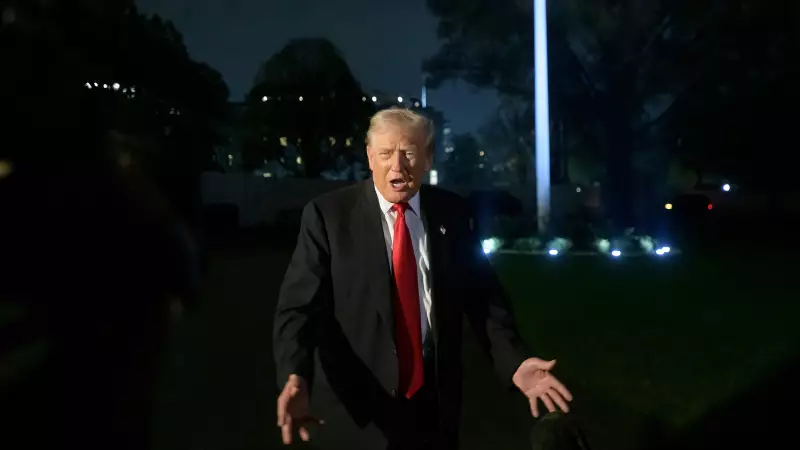
Former US President Donald Trump has revealed that Republican lawmakers are actively drafting legislation that would impose sanctions on countries engaging in trade with Russia. This significant foreign policy move could have far-reaching implications for global economic relationships, particularly for nations like India that maintain substantial trade ties with Moscow.
The Announcement and Political Context
Speaking at a rally in North Carolina, Trump disclosed that congressional Republicans are preparing comprehensive sanctions legislation targeting nations that continue business relationships with Russia. This announcement comes amid ongoing geopolitical tensions and reflects the increasingly hardline stance within the Republican party regarding Russia's international economic connections.
The proposed bill represents a substantial escalation in the US approach to isolating Russia economically. While current sanctions primarily target Russian entities and individuals directly, this new legislation would extend the reach to third-party countries that maintain trade relationships with Moscow, potentially creating significant complications for global supply chains and international diplomacy.
Potential Global Impact and Diplomatic Ramifications
This legislative initiative could particularly affect India, which has maintained and even strengthened its economic ties with Russia since the beginning of the Ukraine conflict. India has emerged as one of the largest purchasers of Russian oil, taking advantage of discounted prices while navigating a complex diplomatic landscape between its historical relationship with Russia and its growing strategic partnership with the United States.
The timing of this announcement is noteworthy, occurring as Trump positions himself for a potential return to the White House. His revelation about the sanctions legislation sends a clear message about the foreign policy direction a future Republican administration might pursue. The proposed measures could create significant diplomatic challenges for countries that have attempted to maintain balanced relationships with both Western powers and Russia.
International trade experts are closely monitoring the situation, as such sanctions could disrupt global energy markets, agricultural trade, and defense partnerships. The legislation's specifics remain unclear, including whether it would include exemptions or transition periods for countries to adjust their trade relationships.
Strategic Implications for India-US Relations
For India, this development presents a complex strategic dilemma. New Delhi has skillfully navigated the Ukraine crisis by increasing purchases of Russian crude oil while strengthening defense and technology cooperation with the United States. However, the proposed Republican legislation could force India to make more difficult choices about its international partnerships and trade priorities.
The Indian government has consistently defended its Russia policy as necessary for protecting its economic interests and maintaining historical relationships. Officials have emphasized that India's position reflects its strategic autonomy and the practical realities of its energy security needs. Nevertheless, potential US sanctions would test this balancing act and could strain the increasingly important India-US partnership.
Economic analysts note that any sanctions legislation would likely face significant implementation challenges and could encounter resistance from US business interests concerned about disrupting global trade. However, the mere discussion of such measures indicates a hardening stance in Washington toward countries perceived as helping Russia circumvent international economic pressure.
As the 2024 presidential election approaches, foreign policy toward Russia and countries that trade with Moscow is becoming an increasingly prominent campaign issue. The Republican proposal signals a potentially more aggressive approach to economic statecraft that could redefine international trade relationships and alliance structures in the coming years.





